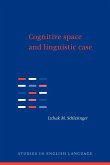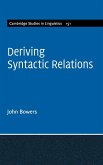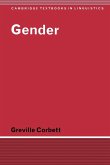This study sheds new light on the complex relationship between cognitive and linguistic categories. Challenging the view of cases as categories in cognitive space, Professor Schlesinger proposes a new understanding of the concept of case. Drawing on evidence from psycholinguistic research and English language data, he argues that case categories are in fact composed of more primitive cognitive notions: features and dimensions. These are registered in the lexical entries of individual verbs, thereby allowing certain metaphorical extensions. The features of a noun phrase may also be determined by its syntactic function. This new approach to case permits better descriptions of certain syntactic phenomena than has hitherto been possible, as Schlesinger illustrates through his analysis of the feature compositions of three cases.
Hinweis: Dieser Artikel kann nur an eine deutsche Lieferadresse ausgeliefert werden.
Hinweis: Dieser Artikel kann nur an eine deutsche Lieferadresse ausgeliefert werden.








